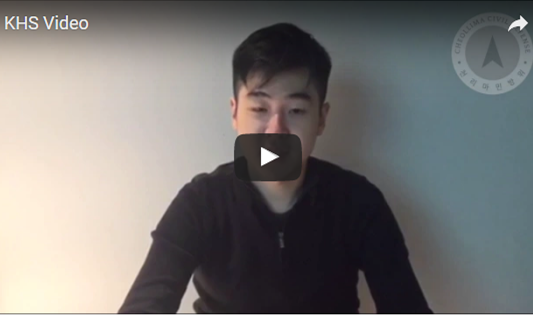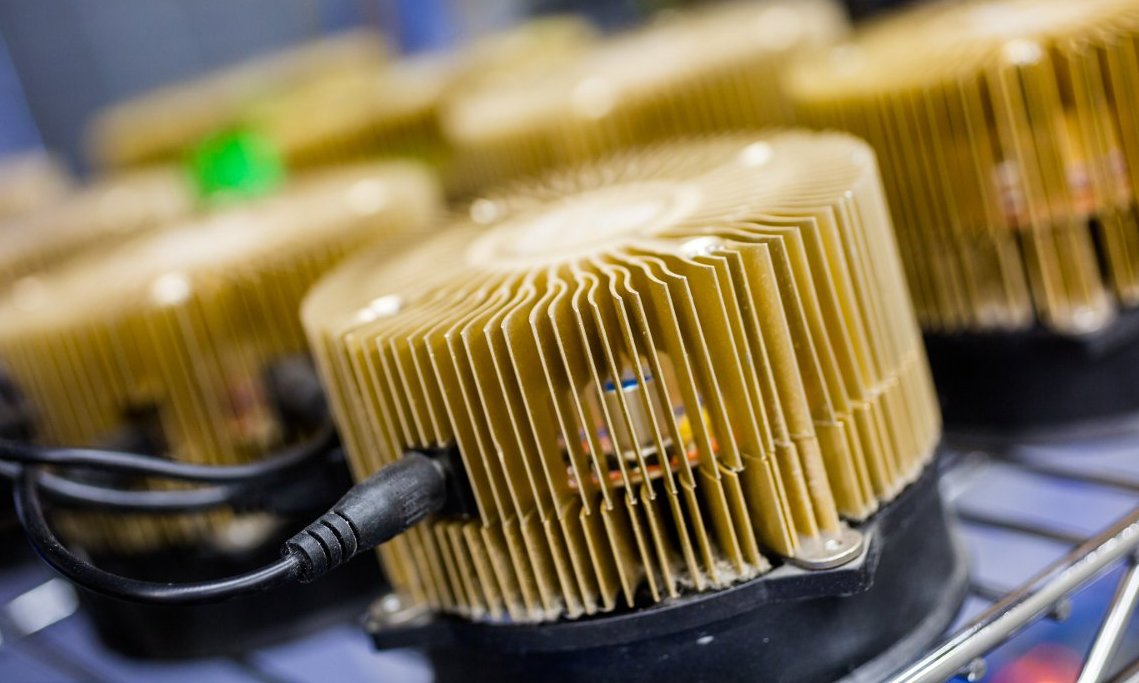Zhang Shousheng: Blockchain Consensus Reduce Entropy of Individual but Enhance That of the Entire System
Zhang Shousheng, a tenured professor at Stanford University, Zhang is a fellow of the American Physical Society and a fellow of the American Academy of Arts and Sciences. a foreign academician of the Chinese Academy of Sciences, a Franklin medalist, and winner of the International Science and Technology Cooperation Award of the People’s Republic of China. He shared his thoughts on blockchain via an online course of 42zhangjing. Below is the transcript.
Hello, everyone, I am very happy to have this opportunity to share with you today. I think everyone may have noticed the idea of blockchain, and I would also like to talk about my thoughts in this area.
I have been deeply concerned in the area of blockchain when it appeared almost four years ago. I think the history of the world can be best described in two sentences: those long divided shall be united; those long united shall be divided. The development of internet has been following such kind of law. In the past, the resources of the U.S. network were almost monopolized by AT & T, which has a lot to do with the Circuit Switching technology at that time. In the beginning, AT & T also faced some competition. However, when the company was large enough in scale and efficiency, it would eventually monopolize the U.S. network market for 30 to 40 years after WWII.
However, often the invention of new technology will interrupt the status quo. The invention of TCP / IP protocol invention promotes the advent of the Internet era, Circuit Switching was replaced by Packet Switching. All of our communications are based on small packets, which enhances the communication efficiency. In this case, there is no need to have a company to monopolize resources of the entire network. In this way, we usher in an era of “the long united are divided”.
Editor’s Note: circuit switching need to reserve network resources while packet switching does not require an appointment with each connection in competition. Network resources follow the rule of “first come, first serve”. Just like when we eat out in the restaurant, “packet switching” will sit on whichever vacant seat or wait for vacancy. “Circuit switching”first make a reservation then go to the restaurant and sit down with the reservation number.
After the “long-divided” period, people found a problem: although the bottom layer network communication was very decentralized and everybody could publish their own information on websites, a systematic organization for the entire information was missing, which makes information hard to find. Driven by this demand, a centralized search company like Google appears in the United States.
What it does was almost the same with what we used to do in the industrial age: reorganization of information instead of atoms. For example, large oil companies extract crude oil, which is also composed of some atoms. The oil company’s approach is close to reorganize the atom, turning it into a chemical. The new generation of companies like Google are good at reorganizing those bits and information. Instead of building websites, Google uses its own algorithm to rank existing sites so that every company can be easily found in the network. It dominated the online world with a new organizational and a new era of monopolization, which led to the “long-divided shall unite”.
These are big platforms for organizing information, but now the entire Internet industry has reached a new stage. Just like the TCP / IP and Packet Switching that was able to defeat a giants such as AT & T, blockchain had enabled the network to be decentralized again. People and people can communicate through blockchain in a P2P way. Even more amazing is that people can exchange value on this platform.
Value is a difficult thing to exchange. The first wave of the Internet is only information exchange, but hopefully the second wave is the exchange of value. Because the core of value is to have a consensus. In a Distributed System, it is very difficult to reach consensus. Each network node has time delay and various computing power. Some computers have good behavior and some don’t. How to achieve a common value in a complex network system is a problem that has not been solved in computer science. Therefore, there is a Fischer-Lynch-Paterson theorem in computer science that consensus cannot be reached in a system that adopts a Deterministic algorithm because the system of this network is too complicated.
Later, people use blockchain technology to reach consensus by putting economic behavior with random mathematical algorithms together. For example consensus are voted by calculating a hash function, which is the consensus-making mechanism on blockchain.
It may be hard for everyone to understand why the consensus mechanism have such a great value in itself. In fact, there is a very deep concept in physics called entropy increase, that is, the physical world always looks disorderly. But the world of life is not the same as that of the physical world. The world of life is indeed getting more and more orderly. Behaving orderly is to reduce the entropy of a behavior, but the entropy of the entire system is still increasing. Therefore, life behavior is to reduce their own entropy so that the entropy in its surrounding may increase.
This is the same with consensus mechanisms. If we want to reach a consensus, we should reduce the entropy. If people have very different opinions, entropy will be great because they behave very disorderly. But if we can unify our opinions and achieve a very orderly state, it must be an act of reducing entropy. However, the act of reducing entropy necessarily increases the entropy of the surrounding world.
Therefore, the algorithm proposed at that time was calculation through some hash functions, which seems to have squandered some energy of the surrounding world, but actually a more valuable wealth, consensus, is gained.
In this sense, the blockchain consensus system is like the life system itself. Its own entropy is weakened but the consensus achieved strengthens the entropy of the surrounding system. This is a cost, but compared to other systems, the cost is still very small.
So, once we have a consensus, there will be a trust and a new opportunity for cooperation between people. So, I call this new era as: Our belief is built on a mathematical algorithm, In math we trust. In the future system, centralized platform is no longer needed, instead we can create some P2P blocks. Through some open source voting tools, we can use a transparent algorithm to define the rules inside the Community. This can even lead to a revolution of the Internet, and a new era of “long united must divide” will come again.
Recently everyone is interested in artificial intelligence, but artificial intelligence now has a big bottleneck. If AI is going to make a very big progress, it will inevitably need a lot of data. However the data providers are not incentivized enough to provide tremendous amount of data now. If data creation can be valued and consensus-oriented with blockchain, a big data market will be formed, which will allow artificial intelligence to move forward even further.
Of course, our greatest wish is to make our world a better place through blockchain technology so that people can create and achieve value through the sharing of data, which will also enable the society to be fairer and the people to have more opportunity.
So in general, just like the history of mankind: Those long divided shall be united; those long united shall be divided, I think the blockchain technology has brought the Internet into such a new era. We are facing this new revolution brought by blockchain and decentralization.
Note: Danhua Capital, founded by Professor Zhang Shousheng, now manages two U.S. dollar funds and one RMB fund of more than 600 million U.S. dollars. Danhua VC has invested in blockchain projects since the establishment and is now seed-round investor in projects such as Dfinity, Symbiont, Brave / BAT, Kyber Network, Orchid Lab, Chia Network, DAGLab and Theta Network.
 English
English
 Chinese
Chinese









Translation of China Bitcoin and Blockchain news. Opinion is from the original author, not 8btc.
COMMENTS(3)
Zhang Shousheng: #Blockchain Consensus Reduce Entropy of Individual but Enhance That of the Entire System http://news.8btc.com/zhang-shousheng-blockchain-consensus-reduce-entropy-of-individual-but-enhance-that-of-the-entire-system …pic.twitter.com/cvB0y5JOPZ
Worth checking out
#Zhang Shousheng: #Blockchain Consensus Reduce #Entropy of Individual but Enhance That of the Entire System | http://NEWS.8BTC.COM http://news.8btc.com/zhang-shousheng-blockchain-consensus-reduce-entropy-of-individual-but-enhance-that-of-the-entire-system …
Zhang Shousheng: Blockchain Consensus Reduce Entropy of Individual but Enhance That of the Entire System | http://NEWS.8BTC.COM http://news.8btc.com/zhang-shousheng-blockchain-consensus-reduce-entropy-of-individual-but-enhance-that-of-the-entire-system …
Please sign in first